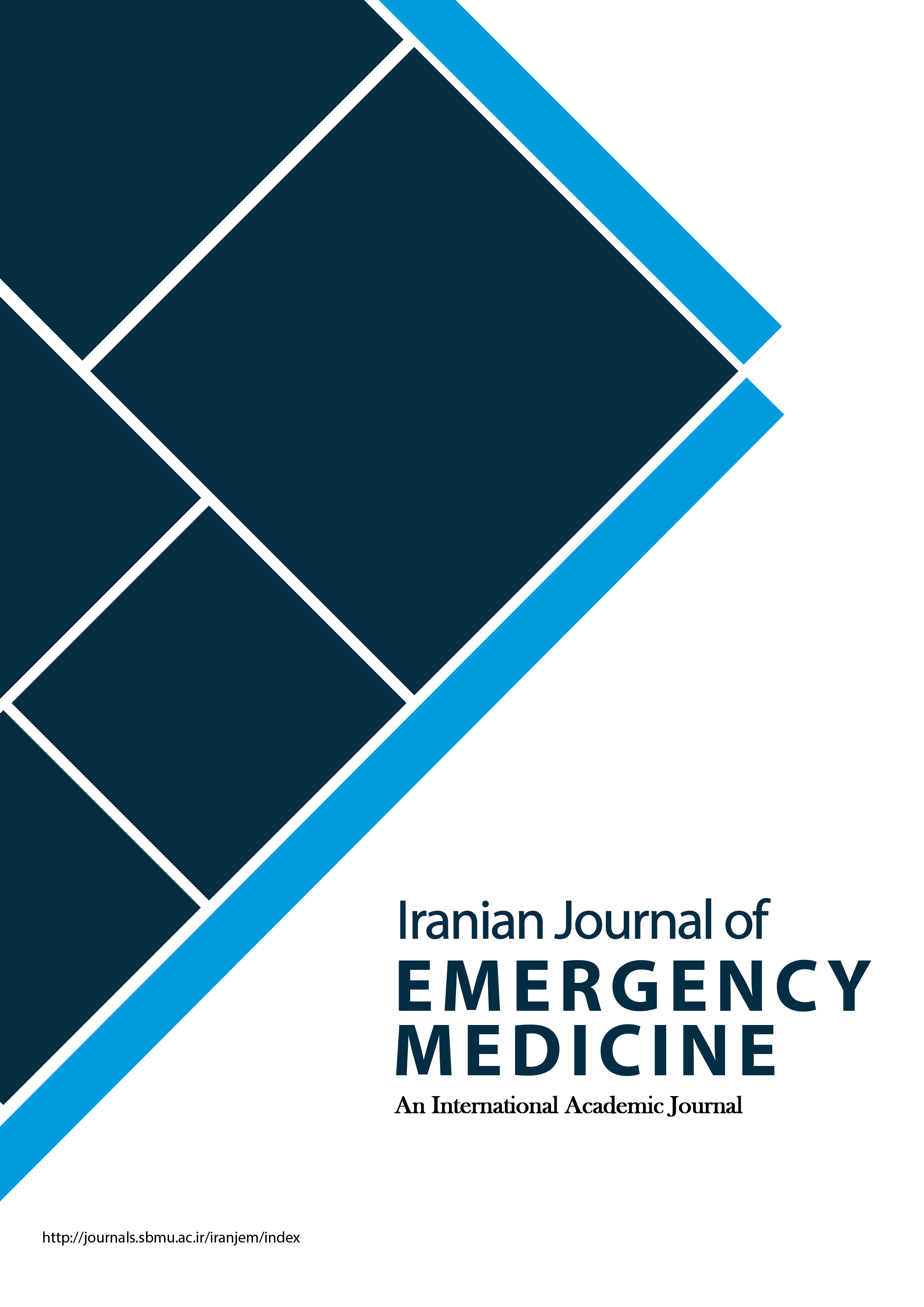There is no consensus on the myocardial ischemia/reperfusion injury induction methods in animal studies
Iranian Journal of Emergency Medicine,
Vol. 10 No. 1 (2023),
30 November 2022
,
Page e5
https://doi.org/10.22037/ijem.v10i1.41497
Abstract
Dear Editor:
Ischemic heart diseases (IHDs) are among the most important causes of death and disability worldwide. Every year, 10.6 million people are diagnosed with IHDs; in 2017, 8.9 million died due to this disease (1). The treatment of myocardial infarction is principally based on prompt blood supply restoration to salvage the ischemic tissue utilizing timely thrombolytic medications and coronary revascularization (2). However, the subsequent reperfusion provokes secondary cellular damage, broadly referred to as reperfusion injury (3). Although a compendium of therapeutic agents has been proposed to allay the detrimental consequences of reperfusion, they do not yet have desirable efficacies, and the research for discovering novel promising treatments is still ongoing.
Preclinical studies are integral to the translation of preliminary research into clinical practice. Conventionally, plausible treatments and innovative drugs are tested in animal experiments to ascertain their effectiveness and safety. Experimentations on cardiac Ischemia/reperfusion injuries comprise a significant body of literature among the preclinical studies, and one can find a myriad of evidence in online databases.
Through our systematic reviews, we have encountered various myocardial ischemia/reperfusion (I/R) models, including large vessel ligation, global ischemia by administrating Isoproterenol, and interrupted perfusion of isolated hearts mounted on the Langendorff apparatus. Moreover, the studies were inconsistent regarding the duration of ischemia and, the subsequent reperfusion phase(4, 5). The secondary damages in the course of I/R injury are proportionate to the extent and duration of the ischemia (6). Moreover, Pathways leading to myocardial damage during I/R injury are considered a dynamic and evolving process (7). Therefore, the efficacy of interventions in mitigating I/R injury may be misestimated depending on the duration of the ischemic and reperfusion phases.
To surmount these concerns, we suggest an expert panel develop standardized guidelines for myocardial I/R injury induction in experimental studies to consolidate further the reliability and validity of the results obtained from preclinical studies, ultimately contributing to the better appraisal of the studies. In the meantime, tissue markers representative of the degree of infarction or tissue fibrosis can be used to compare the induced ischemia/reperfusion injuries in studies.
- Myocardial Infarction
- Animal model
- Ischemia
- Model induction
- Reperfusion
How to Cite
References
Dai H, Much AA, Maor E, Asher E, Younis A, Xu Y, et al. Global, regional, and national burden of ischaemic heart disease and its attributable risk factors, 1990-2017: results from the Global Burden of Disease Study 2017. Eur Heart J Qual Care Clin Outcomes. 2022;8(1):50-60.
Boateng S, Sanborn T. Acute myocardial infarction. Disease-a-month: DM. 2013;59(3):83-96.
Neri M, Riezzo I, Pascale N, Pomara C, Turillazzi E. Ischemia/reperfusion injury following acute myocardial infarction: a critical issue for clinicians and forensic pathologists. Mediators of inflammation. 2017;2017.
Frank A, Bonney M, Bonney S, Weitzel L, Koeppen M, Eckle T. Myocardial ischemia reperfusion injury: from basic science to clinical bedside. Semin Cardiothorac Vasc Anesth. 2012;16(3):123-32.
Black SC. In vivo models of myocardial ischemia and reperfusion injury: Application to drug discovery and evaluation. Journal of Pharmacological and Toxicological Methods. 2000;43(2):153-67.
Soares ROS, Losada DM, Jordani MC, Évora P, Castro ESO. Ischemia/Reperfusion Injury Revisited: An Overview of the Latest Pharmacological Strategies. Int J Mol Sci. 2019;20(20).
Wu MY, Yiang GT, Liao WT, Tsai AP, Cheng YL, Cheng PW, et al. Current Mechanistic Concepts in Ischemia and Reperfusion Injury. Cell Physiol Biochem. 2018;46(4):1650-67.
- Abstract Viewed: 75 times
- pdf Downloaded: 45 times



